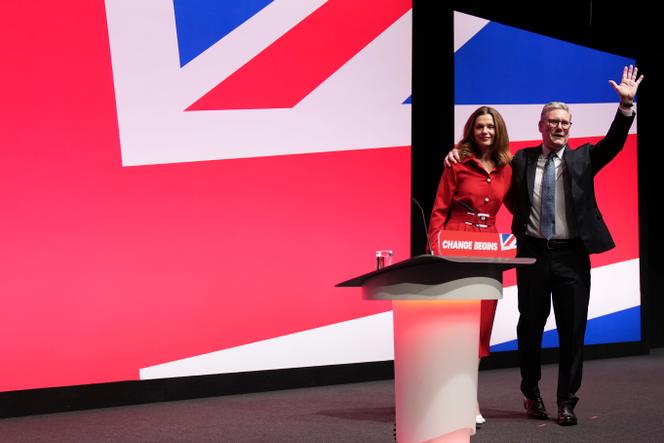


Tony Blair enjoyed a honeymoon period of at least two years after Labour's historic victory in 1997. Despite his antics, Conservative Boris Johnson didn't fall in the polls until at least 18 months after entering Downing Street, when the "Partygate" revelations began to hit the front pages of British newspapers. The current context is obviously different, after 14 years of budget cuts, a virtually stagnant economy and Brexit, which has left a bitter aftertaste. But for Labour Prime Minister Keir Starmer, the honeymoon only lasted a few weeks.
Even before he was able to present a coherent policy platform following his party's landslide victory in the July 4 general election, the Labour leader has already hit rock bottom in the polls. According to a survey published on September 22 by the More in Common organization, 60% of Britons believe that Labour will not be re-elected at the next general election, and 17% of those who voted Labour are already regretting it.
In a September 20 poll by Opinium, Starmer is even less popular than his predecessor at Downing Street, Rishi Sunak, with a negative approval rating of 26% (24% like him, but 50% disapprove).
On Tuesday, September 24, the prime minister tried to regain his footing by delivering a speech at his party's annual conference in Liverpool. He acknowledged that it was "tough" to ask Britons for more effort, but reaffirmed that his government was committed to serving the country and its "working people," and that it had a "long-term plan" to "rebuild the country."
His remarks were less discouraging than those made at the end of August, when he announced from Downing Street that the first budget under the British left this fall would be "painful." Almost simultaneously, his chancellor of the Exchequer, Rachel Reeves, warned that the government would cut energy benefits for 11 million retirees just before winter, citing the need to close an "unexpected" public deficit left by the Tories.
The aim of this message was to blame the Tories for the state of the country, in much the same way as David Cameron justified his austerity budget in 2010 by pointing the finger at Labour's Gordon Brown's supposed mistakes during the 2008 financial crisis.
However, the end of the energy allowance – except for the poorest retirees eligible for social assistance, although the process to qualify is complex – was poorly received. As was Starmer's refusal to abolish the two-child cap on family allowances. In the absence of tangible social initiatives, Downing Street has allowed a dangerous discourse to emerge, suggesting that there is little difference between the Labour and Conservative parties.
You have 52.12% of this article left to read. The rest is for subscribers only.
